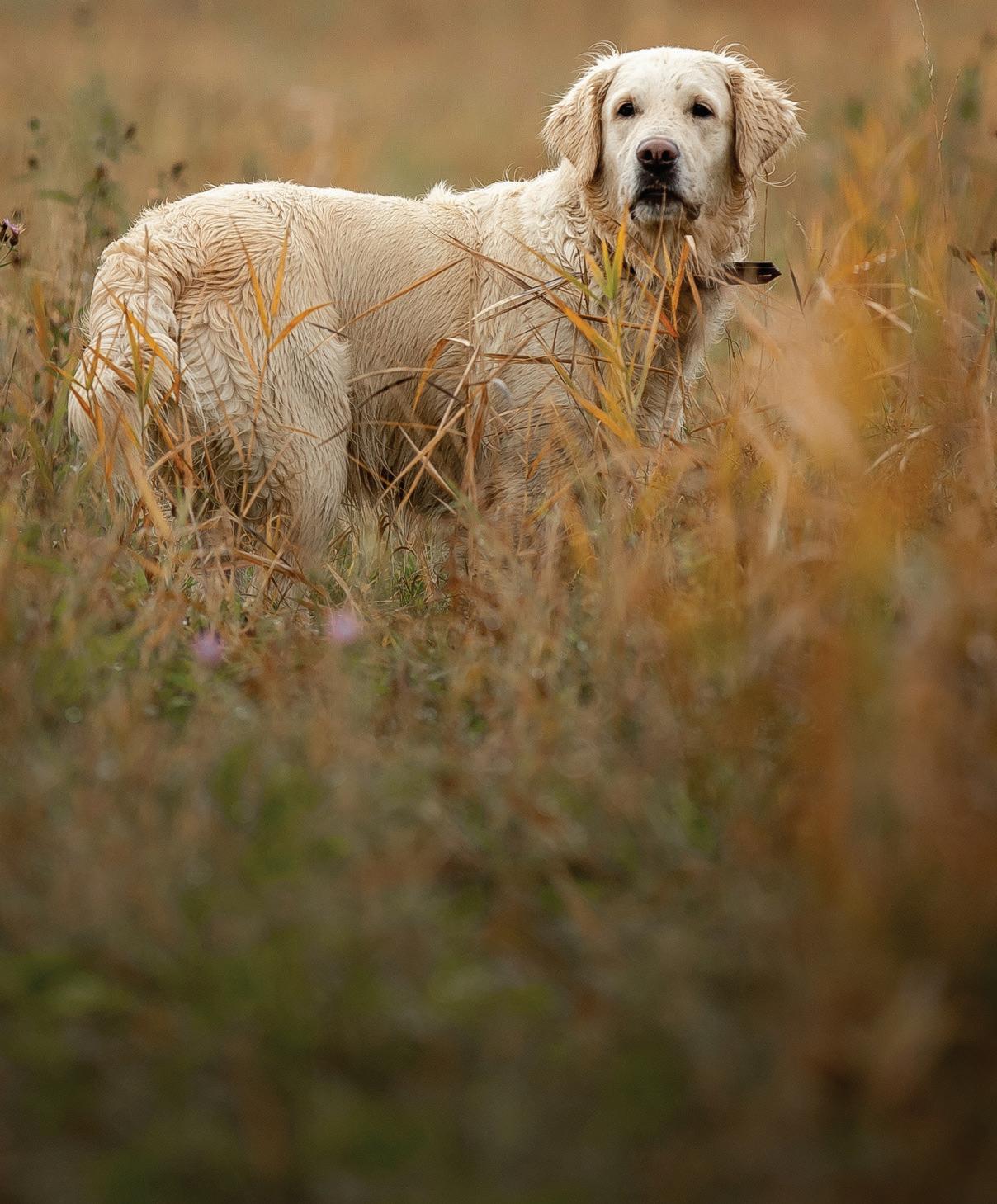
2 minute read
Finding the Perfect Bird Dog

by William Wise

Duck season is over. Dove season is a long way away. Your kids are immersed in their activities, and your wife is happy the alarm isn’t set for four o’clock on Saturday morning. You, however, are still obsessed with bird hunting. You need a dog. Not just any dog. You need a gun dog. A well-trained gun dog. But how do you get a welltrained gun dog? Not by accident, it turns out.
For our education issue, Madeworthy reached out to gun dog trainer JC Strange to better understand the process of turning puppies into great hunting partners.
JC is the owner and head trainer of Cripple Creek Retrievers in Decatur and has trained dogs that have competed at the highest national levels, with over two decades’ worth of happy customers.
JC pointed out an oftenoverlooked aspect of owning a hunting dog.
“Having a hunting dog is fun.” There’s more to it, though. “Texas law states that you have to attempt to recover any game animal you shoot,” said Strange. A dog, with its superior sense of smell and willingness to swim into cold water is “an important tool for any winged-game hunting.”

How do you know if your new puppy can be forged into that kind of tool? Strange opines, “There’s a common misconception that just because it’s a Labrador retriever, the puppy from an ad in the newspaper will make a good hunting dog. That isn’t necessarily true.”
According to Strange, training a gun dog starts with a three-part process: “Get the right puppy, raise the right puppy, and train the right puppy.”
Fortunately, finding a puppy has never been easier. “Social media is the key... The gun dog world is very friendly and helpful,” said Strange. He also stressed the importance of finding a local trainer.
In fact, finding a trainer before you find a puppy may be the best way to find the perfect puppy. The gun dog community is closely knit. A good trainer will know the type of dog you need based on the hunting you do. Guides who hunt nearly every day of duck and goose season have different requirements than someone who’s in an office five days a week. “Most dogs are in the field only 20 or 30 days a year. They have to be good family pets for the other 330 or 340 days,” said Strange.
The most important reason to find a local trainer is while the dog is being trained to hunt, the owner is being trained to hunt with the dog. Strange said, “It’s one thing if the dog does great with one of our trainers, but if he doesn’t do well out in the field with his owner, none of it matters.” Strange encourages his clients to learn with their dog.
“We want dogs between five and six months old, and we keep them for four months… they will hunt well when they leave here… but they’re still puppies, and the owner needs to be experienced in handling and helping a puppy...”
JC also stresses the importance of picking the right breed. While your Boykin spaniel may be the most willing dog in the world, expecting him to retrieve limits of Canada geese for five hunters is not fair. Neither is asking your Chesapeake Bay retriever to sniff out and hold on twenty coveys of quail in a day. While JC trains mostly Labs, he also trains Boykins, German shorthairs, English pointers, Brittanys, and others. Every breed has its strengths and weaknesses; therefore, every breed is a compromise for a one-dog hunter.
If you’re itching to have a hunting dog but don’t know where to begin, start by finding the right teacher who will educate both you and your puppy. The right teacher will ensure you find the right dog, raise the right dog, and train the right dog.
by Danika Franks










